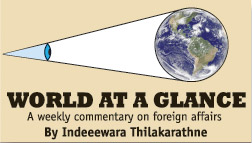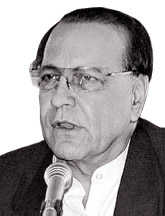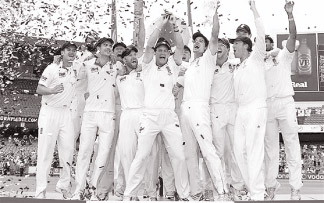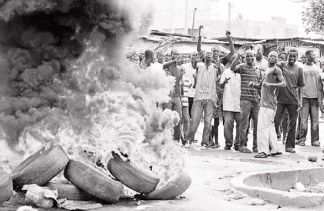|

Assassination of Punjab Governor
Last week's international scene was dominated by two major
developments; the deepening political crisis in Ivory Coast and the
disturbing political developments in Pakistan with the assassination of
the Governor of Punjab, Salman Taseer by an elite bodyguard infused with
extremist views. These developments raised alarms around the world.
|

Salman Taseer |
The assassination of the governor of Punjab, Salman Taseer has been
viewed as a blow to democracy in Pakistan. Governor Taseer's
assassination was the most high profile political assassination in
Pakistan since the killing of former Prime Minister Benazir Bhutto in
2007. Taseer was gunned down by one of his own elite guards as he got
into his car at the Kohsar Market, a cosmopolitan shopping centre in
Islamabad, popular with Westerners and rich Pakistanis.
Governor Taseer had been in the forefront of a campaign against
Pakistan's pernicious blasphemy law. He was widely cited when he
appealed for the pardon of a Christian woman, Asia Bibi and a friend had
said that he was risking his life by speaking out against the blasphemy
law.
"I was under huge pressure sure 2 cow down b4 rightist pressure on
blasphemy. Refused. Even if I'm the last man standing," he wrote on his
Twitter account on December 31.
Earlier, speaking about Fatwa or a religious decree issued against
him, Taseer had told the BBC Urdu Service about "these illiterate"
clerics.
"They issued fatwas against Benazir (Bhutto) and Zulfikar Ali Bhutto
(her father, an executed former president), and even the founder of the
nation, Muhammad Ali Jinnah. I do not care about them," he had said.
The murder suspect, identified later as Malik Mumtaz Hussein Qadri by
the Interior Ministry, has been cited saying, "Salman Taseer is a
blasphemer and this is the punishment for a blasphemer." Although
Taseer's killing may have been carried out by a solo killer, widespread
support for his action suggests the rise of fundamentalist elements in
Pakistani politics.
The controversial blasphemy law was fortified in the 1980s by the
dictator General Zia-ul-Haq.
The suspicions for the rise of fundamental sentiments were vindicated
by a statement by abroad alliance of clergy condoning and lionising the
assassin. "No Muslim should attend the funeral, try to pray for Salman
Taseer or even express any kind of regret or sympathy over the
incident," said Jamaate Ahle Sunnat Pakistan, an organisation that
represents the moderate Barelvi sect, the mainstream branch of Islam in
the country.
It is evident that the disturbing developments in Pakistan will have
a long-term spillover effect, not only on neighbouring Afghanistan, but
also on the entire region.
|

The Ashes winners |
Australia lose Ashes series on home soil
Dominant England claimed their first Ashes series win in Australia in
24 years with their third innings victory over the home team in the
final Sydney Test.
On Friday, England wrapped up an innings and 83-run victory on the
last day of the fifth Test match played between England and Australia.
It was England's first series victory Down Under since Australian was
beaten by Mike Gatting's team in 1986-87.
The England team scored their highest-ever score in Australia (of
644) and dismissed hapless Australia for 280 and 281 in the two innings.
Political crisis in Ivory Coast
The election in Ivory Coast was held following the peace deal which
ended the 2002-2004 civil war. Since then, there is a tug-o-war over the
balance of power between the North held by the New Forces insurgents and
the South held by the security forces loyal to incumbent President
Laurent Gbagbo. Following the election the two rivals both declared
themselves as President.
|

Unrest in Ivory Coast |
The political crisis in Ivory Coast started following the disputed
presidential election held in November 28 which the incumbent
President's rival Alassane Ouattara is believed to have won. Although
the international community and the UN believed Alassane Ouattara, a
technocrat who studied in the USA and spent most of his career abroad,
had won the election, President Laurent Gbagbo strengthened his claims
to presidency and is still refusing to hand over power. Earlier, the
electoral commission had decided that Gbagbo's rival Alassane Ouattara
had won the election with 54 percent of the votes before the
Constitutional Council annulled a large number of votes from Ouattara's
northern stronghold.
With incumbent President Gbagbo refusing to step down, his rival
Ouattara set up a government -in-waiting on the grounds of Abidjan's
Golf Hotel which serves as his Cabinet Office.
Earlier, the powerful regional group, Economic Community of West
African States (ECOWAS) and African Union tried to intervene and resolve
the situation, but so far they have not been successful.
Analysts say that the political crisis has just commenced and would
be a complicated political stalemate given contradictory factors such as
nominal constitutional legitimacy, backing of the military and media for
incumbent Gbagbo and logistical capacity for the ECOWAS to make a direct
military intervention to oust Gbagbo from power.
The latest developments in this affair is that Ouattara is calling
for a West African Special Forces operation to remove the incumbent
leader from power.
On Thursday, the US said it was barring US citizens from carrying out
financial dealings with Gbagbo. Adam Szubin of the US Treasury, Office
of Foreign Assets Control, said the US wanted to "isolate him and his
inner circle from the world's financial system and underscore the desire
of the international community that he step down". |

